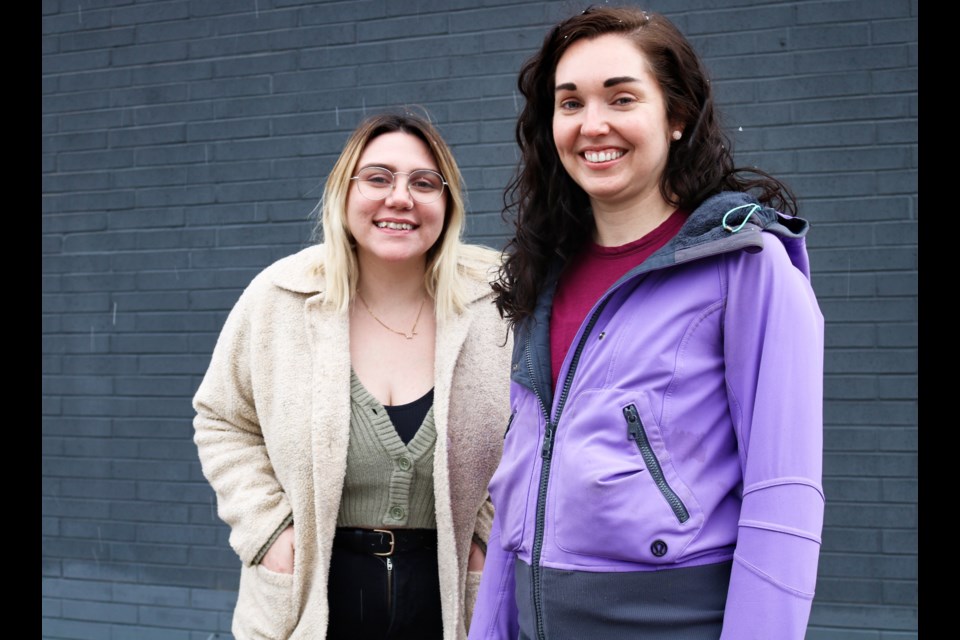A local organization for women scientists is making a breakthrough in supporting each other within the community.
Started in 2019, 500 Women Scientists - Guelph Pod aims to build a more inclusive science, technology, engineering, math and medicine (STEMM) community dedicated to training a more diverse group of leaders in science. The group hosts mentorship programs to create networking opportunities and share knowledge.
Currently, some members of the Guelph chapter are featured in a Guelph Civic Museum exhibit called Iron Willed: Women in STEM. Heather Slinn, one of the founding members of the Guelph chapter, said it is great to see its members being featured in community initiatives like this.
"It's also cool to know that we have been doing enough work in the community since 2019 that people are coming to us for this type of information," said Slinn.
The organization 500 Women Scientists began seven years ago in the United States. Slinn said she first heard about them while doing her graduate degree in the country.
"It came about because of the Trump election in 2016, because of the election and all of the misogynistic and anti-science rhetoric that was coming out at that time," said Slinn. "There was a group of graduate students at the University of Colorado in Boulder that were basically like, 'Hey, this is a huge issue. We are going to write an open letter and try to get 500 signatures from other scientists because we can't elect someone with this type of mentality into government."
This letter, which got thousands of signatures, was a catalyst for 500 Women Scientists. Chapters began to pop up across Canada and around the world.
Returning to Guelph to finish her graduate degree, Slinn and a colleague at the University of Guelph started the local chapter in March 2019 from a former women's environmental science group on campus.
"I felt like I needed a community around these issues. As a graduate student in the U.S., I faced a lot of sexism, misogyny, xenophobia, that I found incredibly frustrating," said Slinn, needing an outlet for her anger.
Today, the local chapter has 145 members consisting of graduate students, university faculty and scientists from various sectors, including government, academic, agriculture and the environment. As part of its mandate, undergraduate students, citizen scientists and non-binary scientists are also encouraged to join.
"We try to be inclusive because we know there are a lot of different industries and types of scientists in town," said Slinn.
While started as an outlet, Slinn said the group formed into a positive community. With a largely younger membership, the Guelph chapter focuses on providing workshops to serve its members, including a five-session workshop focusing on different aspects of building a career.
The workshop discussed with members how to set up a LinkedIn profile, creating a resume, developing interview skills, negotiating your pay and also held an equity, diversity and inclusion (EDI) course, which was run by the Rainbow Diversity Institute.
"We had lots of positive reviews and people came back to us and said this was so helpful to have all of this explained and they were interacting with the speakers and other members as well," Slinn said about the workshop series.
Lexi Mollica, another member of 500 Women Scientists - Guelph Pod, said it can be isolating to face these issues on your own, especially in academia.
"It really helps to have a community of people who are going through the same things and have that community that everyone can support each other, and that's what we're trying to do with our organization is to provide a safe community space where women support other women in science."
Besides networking, writing is another aspect of 500 Women Scientists, and like other chapters, the Guelph group runs letter writing campaigns.
"The letter writing is kind of a small thing that is the easiest thing for us to keep on going with whenever issues arise," said Slinn. "So we focus on social issues and environmental issues, so Bill 23 would've been one of the last letter writing sessions that we've had. Before that, we had one for the feminist movement that has been happening in Iran."
Another writing event run by the organization is Wikipedia Edit-A-Thons, which are campaigns to edit or publish content on Wikipedia highlighting the contributions made by women and people in minority groups in STEMM.
To participate, 500 Women Scientists offers a six-week course in partnership with Wiki Education to teach volunteers how to edit Wikipedia pages and contribute to the platform. Through this program, Slinn and Mollica said this is an opportunity to rewrite women into history.
"Women who have made huge contributions to fields of science, but haven't been given credit for it," said Mollica, citing Rosalind Franklin, who contributed to the discovery of the double helix structure of DNA, but wasn't given credit for her work.
"It's basically going into Wikipedia articles about different fields of science, different discoveries, things like that, and making sure they're properly attributed to the women who had these contributions."
Going into 2023, the chapter is looking into planning more in person events. Like others, Slinn said members were experiencing 'Zoom fatigue' over the pandemic with its larger active group dwindling in participation. By planning events, Mollica said they are looking to 'infuse more energy' into the group.
Along with future events, the group is looking to continue to engage with the community and bring on more members. Slinn said the chapter has been in talks with Royal City Science about featuring its members in talks and events.
"It's been four years since I've been doing this, and it's great and I want to keep it going," said Slinn.
